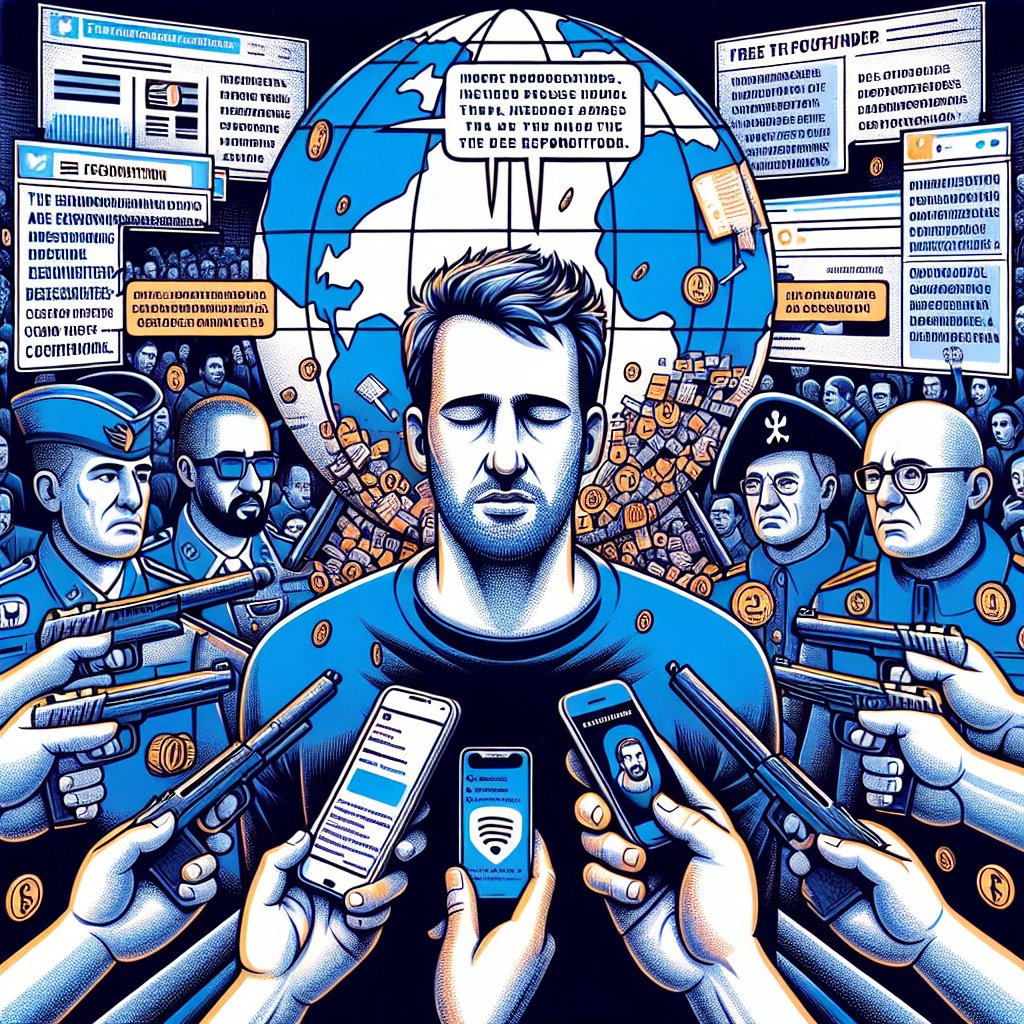Image created by AI
Debate Over Online Platforms' Liability Intensifies with Arrest of Telegram CEO Pavel Durov in France
Pavel Durov, the enigmatic founder and CEO of the globally recognized messaging app Telegram, has become the center of a heated debate after being detained by French authorities. The high-profile arrest provokes an important and contentious discussion about the extent to which online platforms are, or should be, liable for the actions of their users. Durov faces allegations of complicity in a series of serious crimes that were supposedly coordinated using his platform, a situation that has wider implications for the regulation of online speech.
Countries across the globe have been wrestling with the complex issue of internet governance, balancing the need to prevent abuses like cyberbullying, hate speech, and the spread of illegal material with the foundational principles of free expression and privacy that define the digital age. Durov's arrest by a nation that champions civil liberties marks a significant moment in this ongoing tug-of-war.
The legal controversy doesn't only affect the tech industry but touches on broader philosophical questions about responsibility and control. Critics argue holding tech executives criminally accountable for user actions is as illogical as blaming vehicle manufacturers for crimes committed using their cars. This perspective was reinforced in the 1996 Communications Decency Act, which granted internet providers broad immunity in the United States.
However, some experts insist moderation is essential and argue that platform providers do bear some responsibility for the activities they facilitate. Durov’s detainment has inevitably shaken the tech world, especially among those who advocate for a freer, less regulated internet. Prominent figures and tech entrepreneurs unite under the banner #FreePavel, voicing deep concerns about the ramifications for internet freedom and the safety of tech founders in democracies.
Telegram differs from competitors like WhatsApp and Signal concerning user data encryption. The platform does not employ end-to-end encryption by default, potentially allowing Telegram more access to share with authorities. This technical detail intensifies the scrutiny on the messaging app and may contribute to the increased pressure from law enforcement.
The case also taps into geopolitical tensions, as Durov previously resisted Russian efforts to shut down dissent, leading to his departure from the country. His arrest has unified voices in Russia who rarely agree, all calling for his release.
French President Emmanuel Macron has offered reassurance that Durov's arrest aligns with France's support for civil liberties and is not politically motivated. Yet, the stance of the French government and the industry's response will remain vividly in the spotlight as Durov faces a crucial juncture: after 96 hours, he will be charged or released. The industry and the international community await the outcome, which may forge a new chapter in the tale of online freedoms and accountability.










